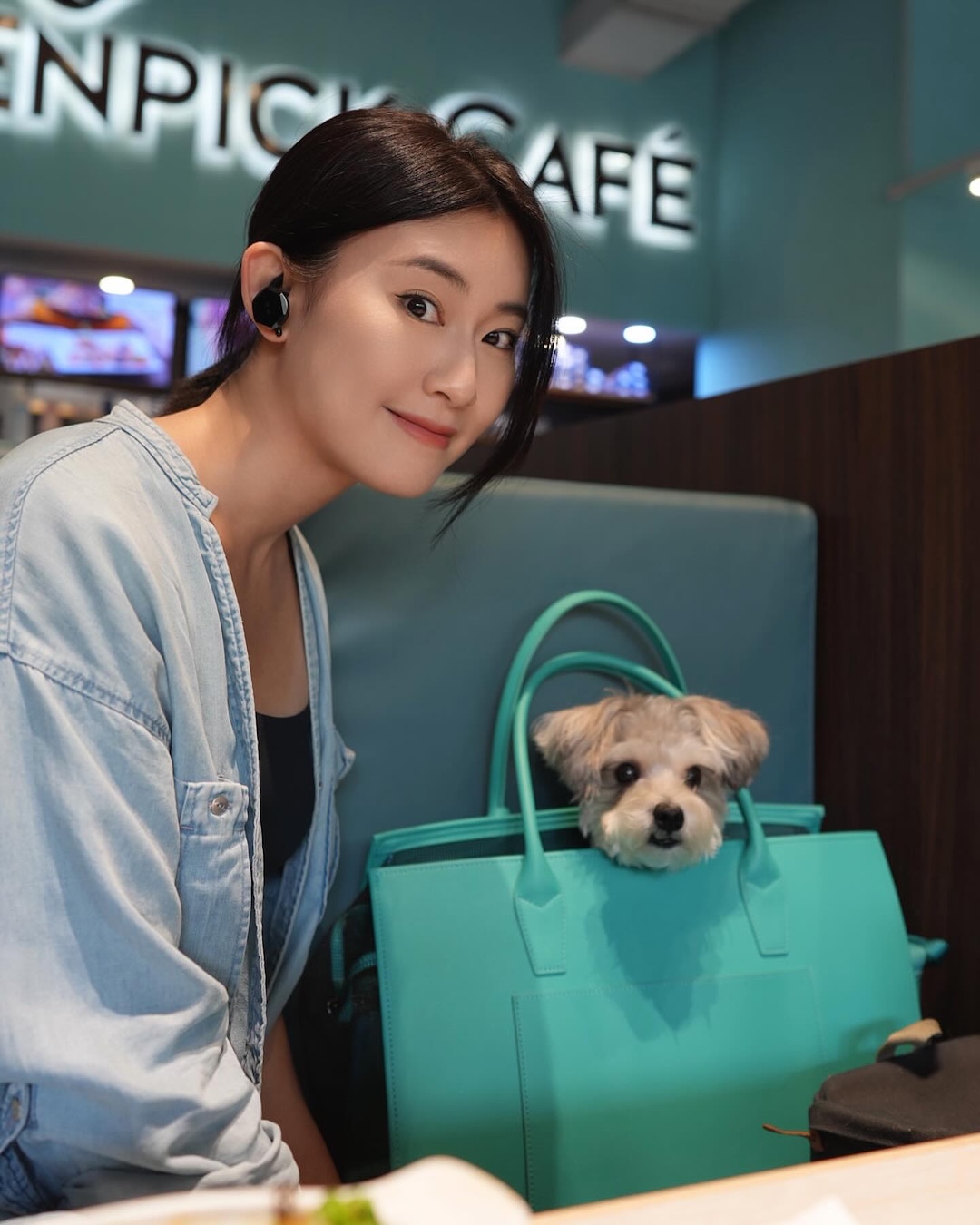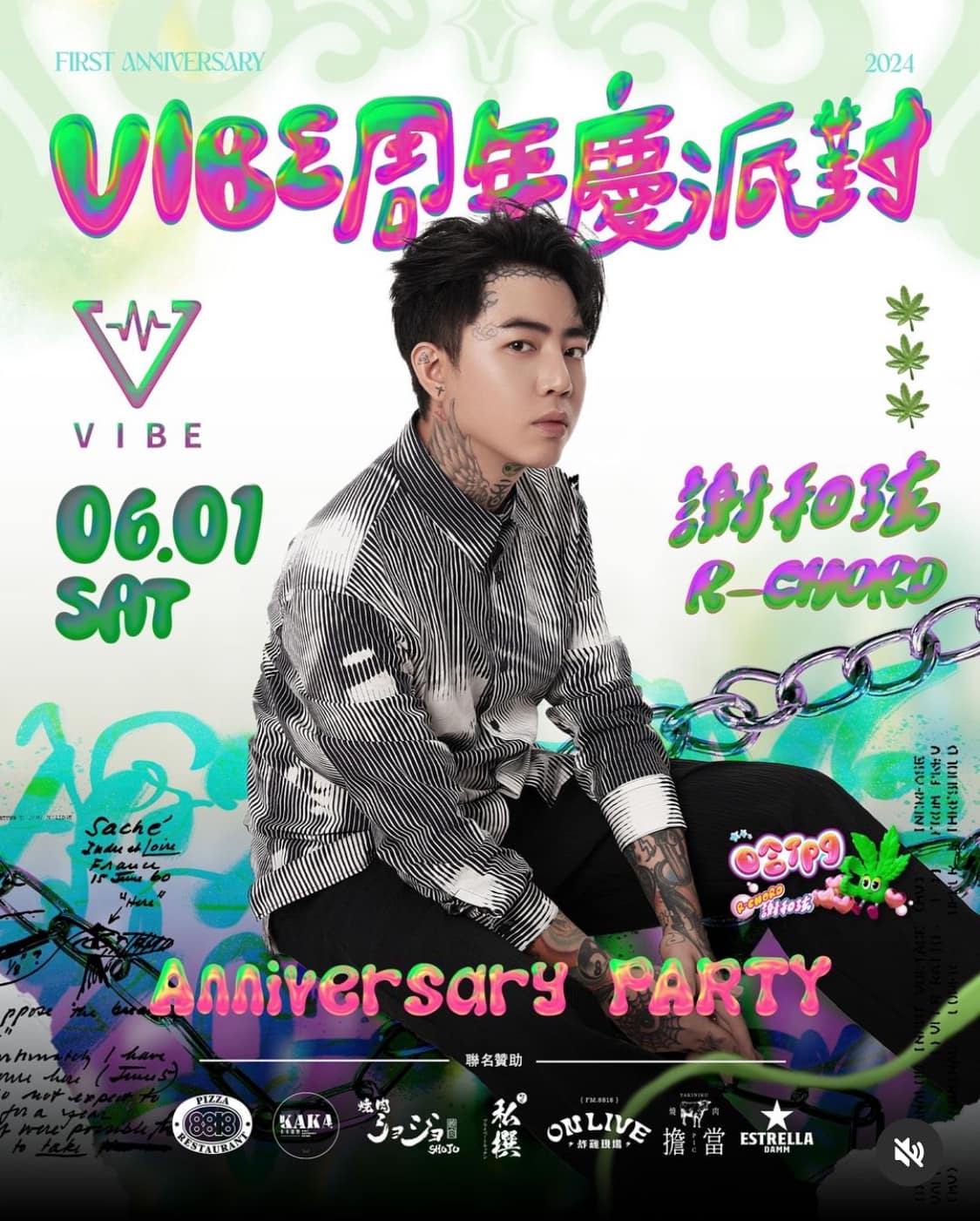by Brian Hioe
語言:
English
Photo Credit: rheins/Flickr/CC BY 3.0
CHINESE UNITED FRONT activity involving Taiwanese celebrities and influencers has increasingly been in the spotlight after a number of recent incidents.
In the first incident, Chinese celebrity Hu Ge visited Taiwan briefly for a “youth dialogue” with Taiwanese fans at the Songshan Cultural and Creative Park. Hu Ge arrived on June 12th for the event and left early on June 13th, framing his visit as only for the intended purpose of carrying out the “youth dialogue.”
Nevertheless, as it transpired, Hu was on the same flight as a delegation of Shanghai government officials who were traveling to Taipei to plan upcoming city-based exchanges between Taipei and Shanghai as sister cities. These exchanges take place annually and have proved especially controversial under preceding Taipei mayor Ko Wen-je, during which Ko referred to Taiwan and China as “One family on both sides of the Taiwan Strait, sharing a common destiny.” Such exchanges have continued under current Taipei mayor Chiang Wan-an of the KMT.
As Hu was greeted at the airport by fans, subsequently photos of Hu entering Taiwan and walking alongside Shanghai Taiwan Affairs Office (TAO) director Zhong Xiaomin spread on the Internet. Criticisms are that Hu’s presence on the same flight as Zhong was premeditated, rather than coincidence, so as to stage this photo op intended to generate positive press for the TAO in Taiwan.
 Alexis Ho. Photo credit: Alexis Ho/Facebook
Alexis Ho. Photo credit: Alexis Ho/Facebook
The DPP has criticized the Chiang mayoral administration as allowing for this, though the Chiang administration denied inviting Hu. Likewise, the Executive Yuan has emphasized that it hopes to see Chinese entertainers continue to travel to Taiwan, but not for the purposes of carrying out United Front activity or Chinese influence operations.
In the wake of the incident, Taiwanese YouTuber Potter King posted on social media that ten Taiwanese influencers and their production crews were traveling and filming in China on subsidized trips paid for by the Chinese government. Expenses such as travel, food, and lodging are paid for, taking place under the auspices of cross-strait youth exchanges. This, too, would be a means of bettering China’s image in Taiwan among young people. Potter King had appeared in videos with former Taiwanese president Tsai Ing-wen in the past.
Subsequently, two entertainers–Alexis Ho and Hsieh Ho-hsien, better known as R-Chord–came forward about having been approached by a Chinese media company about forming a pro-China political party in Taiwan. The political party would be called the “Taiwan Embrace Peace Party”, and frame itself as beyond pan-Blue and pan-Green political distinctions. In return for providing content for the party, the two were promised more than ten million NT per year in advertising and endorsements. Participants in the party could become its founders and serve as deputy chairs, while members of the Chinese media company would act as its steering committee.
In particular, the letter received by Ho and Hsieh claimed that the political party had 450 million NT in funding, solicited from Taiwanese and overseas Chinese business owners. 300 million NT would be used to hold a concert event promoting cross-strait peace and shared Chinese history, while 100 million would be used to shoot twenty short advertising films. As a condition for cooperation, participants were asked to publish a statement about “Building New Cross-Strait Cooperation” before June 21st. Speculation is that the timing for June 21st may be because that is when efforts by the KMT to expand legislative powers will be discussed next.
The text of the letters sent to Ho and Hsieh are similar but have slight variations, in referring to different regions of China. This suggests that United Front departments from different parts of China may participate in the plan, though Henan seems to be where planned events involving cross-strait concerts would take place. The new party would aim to quickly gain more than 1,000 members, run in the 2026 elections, and to secure one mayoral seat and ten city or county councilor seats. The finances of the company would be run through a shell company based in the Virgin Islands.
Ho later stated that she was not against cross-strait exchanges between Taiwanese artists and Chinese artists, but did not wish to compromise on her values. Hsieh later publicly criticized Taiwanese singer Maxine Chi for participating in an event in China that could potentially be part of the series of events referred to by Potter King. Shanghai-based influencer Layla was also criticized by netizens as potentially participating in Chinese influencer cultivation efforts, but later posted on social media, that while she had received a similar letter, she had turned it down.
Chinese attempts to influence Taiwan through entertainers and influencers continue, then. A number of Taiwanese entertainers working in the Chinese market posted statements criticizing Taiwanese independence and affirming the view of Taiwan as part of China after Lai Ching-te’s presidential inauguration in May. Rock band May Day also referred to its members as “Chinese” during comments by lead singer A-Shin, something seen as compromising when the band had previously refused to express the view of Taiwan as part of China, even when the band was reported during the 2024 presidential election cycle as having faced retaliation from the Chinese government in the form of lip-synching allegations over refusing to perform some unspecified service for the Chinese government.
Still, one notes the somewhat unusual means by which Ho and Hsieh were approached by Chinese United Front efforts. For one, the “Taiwan Embrace Peace Party” would clearly be a party aimed at mimicking the successes of Ko Wen-je’s TPP, in achieving a similar benchmark of growth in local elections to the TPP, and in framing itself as beyond traditional blue and green distinctions.
 R-Chord. Photo credit: R-Chord/Facebook
R-Chord. Photo credit: R-Chord/Facebook
Yet, quite unusually, the “Taiwan Embrace Peace Party” hoped to recruit former DPP legislator Yu Tien as party chair. R-Chord, who ran for office in 2024 as an independent on a politically progressive platform that involved decriminalizing cannabis and legalizing sex work, also seems like an unusual choice for United Front efforts to include, at a time of significant crackdowns against musicians over liberal views on drugs or sexuality in China. In comments, R-Chord also referred to how he has tattoos, at a time when China has sought to crack down on musicians with tattoos.
Later reports revealed that former Minister of Finance Chuang Tsui-yun, former Mainland Affairs Council minister Chiu Tai-san, former Minister of the Interior Hsu Kuo-yung, former Hsinchu mayor Lin Chih-chien, and former legislator Su Chih-fen were invited to join the party or to serve as its chair. As these are all DPP politicians, some of which served as part of the Tsai administration, this proves further bizarre.
It may be, then, that Chinese United Front efforts directed at Taiwan still remain scattershot in nature, sometimes failing to understand the local context in a way that appeals to young people, or that accords to its intended aims in apparently soliciting pan-Green politicians or entertainers to become part of United Front efforts. At the same time, it is probable that some Taiwanese entertainers working in the Chinese market will embrace the opportunities that cooperation with United Front efforts may bring.

